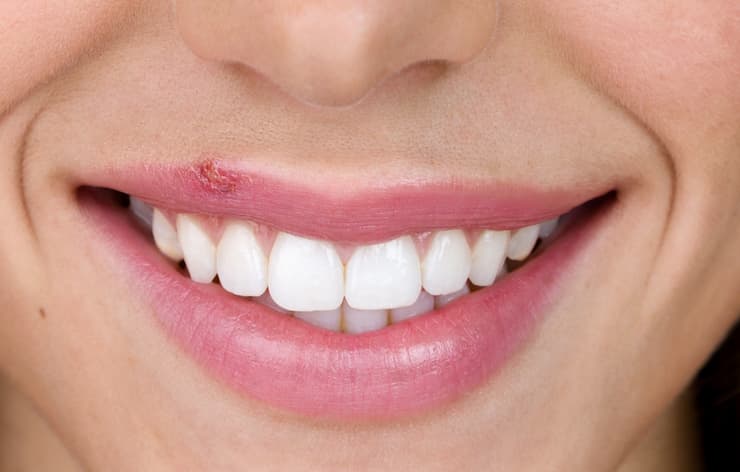Cold sores
Three Cold Sore Remedies
1. Cold Compress
To help your cold sore outbreak heal quickly, try holding a cool, damp cloth against the sore. This can help make your sore less red and crusty and help it heal more quickly, reports the Mayo Clinic.
If you can feel a cold sore coming on, Harvard Health suggests applying ice to the area. This can keep a full-blown cold sore from developing or help it heal more quickly.
2. Cold Sore Ointment
Cold sore ointment is available over the counter and, when applied as directed, it can help shorten a cold sore outbreak. There are also products that numb the area to ease the pain.
3. Prescription Medication
Antiviral drugs can also be used to help your cold sores heal more quickly. These drugs, such as acyclovir, famciclovir and valacyclovir, are available with a prescription from your dentist or doctor.
These medications are most effective when they’re taken before the blisters appear. When you feel a cold sore coming — tingling, burning, swelling and redness in the area — the medications can help heal the cold sores or even stop them from appearing at all.
Alternative Remedies for Cold Sores
When you’re experiencing a cold sore outbreak, you may want to try to treat it with natural remedies.
Rhubarb and Sage
According to Mayo Clinic, a cream containing rhubarb and sage could be about as effective as acyclovir (an antiviral) cream. This remedy may decrease pain and promote quicker healing time.
Avoid Rubbing Alcohol
Though some people swear by rubbing alcohol as a remedy for cold sores, there isn’t scientific data to back up this cure. The belief is that because alcohol is a drying agent found in some over-the-counter cold sore preparations, pure rubbing alcohol will dry the sore and promote healing. However, rubbing alcohol is known to cause contact dermatitis, producing a slight burning sensation and inflamed red skin.
To avoid these risks, it’s best to steer clear of rubbing alcohol on your cold sores.
How to Prevent Cold Sores
The virus that causes cold sores, herpes simplex virus type 1, is a lifelong problem, but there are measures you can take to prevent outbreaks.
Replace your toothbrush after a cold sore. The virus can live on your toothbrush for days, and if you use a contaminated toothbrush, your lips could become re-infected.
Avoid triggers for cold sores, which can be different for each person. Some common cold sore triggers are stress, hormonal changes, illness and physical strain. Once you know your personal triggers, you can be mindful to avoid them.
Taking care of your lips with a sunblock lip balm can help prevent cold sores from other triggers, such as exposure to sunlight and dry, cracked lips. There are even lip balms specifically designed to help prevent and treat cold sore outbreaks. While this isn’t a guarantee to stop cold sores, keeping your lips moisturized and protected from the sun is an easy daily step for prevention.
If you suffer from cold sores often, your dentist may recommend taking an antiviral medication regularly to help prevent outbreaks.
Although there isn’t a cure for the common cold sore, there are plenty of ways to cope with it. Finding the right treatment for you might take a bit of trial and error, but with these options, you can find one that works best for you and get back to your healthy smile.
